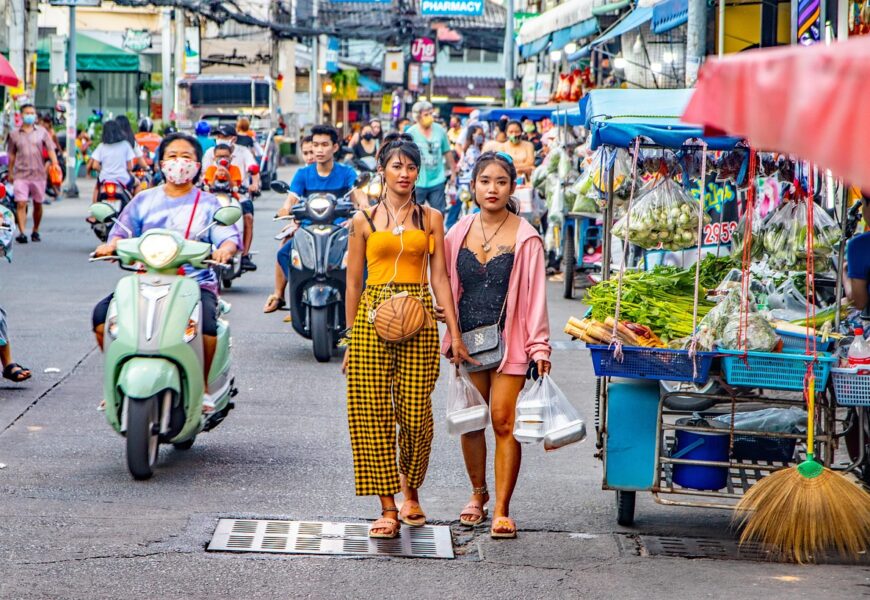Thailand represents a complex and fascinating cultural landscape where women play pivotal roles in society, challenging traditional stereotypes while maintaining deep cultural connections. With a rich history spanning centuries, Thai women have emerged as powerful economic contributors, cultural preservers, and progressive social changemakers. Their unique position bridges traditional expectations with modern aspirations, creating a dynamic and evolving social narrative that challenges simplistic external perceptions. Understanding the multifaceted experiences of Thai women requires nuanced exploration of historical contexts, contemporary challenges, and remarkable achievements across various domains of personal and professional life.
Historical and Cultural Context of Thai Women
Thai women have historically occupied complex social positions deeply rooted in Buddhist and traditional cultural frameworks. Unlike many patriarchal societies, Thai culture traditionally afforded women significant social respect and economic opportunities. Buddhist philosophical principles emphasizing compassion and individual potential contributed to relatively progressive gender dynamics. Historically, women participated actively in economic activities, managed family finances, and maintained substantial social influence within community structures. Pre-colonial Thai societies often recognized women’s leadership capabilities, with numerous examples of female rulers and influential political figures challenging Western misconceptions about women’s roles in Southeast Asian cultures.
Traditional Thai social structures emphasized collective family dynamics where women played central roles in maintaining familial harmony and economic stability. Women were typically responsible for household management, financial planning, and intergenerational knowledge transmission. These responsibilities positioned them as critical economic and social agents, challenging simplistic narratives of female subordination prevalent in external perspectives.
Economic Contributions and Professional Advancement
Contemporary Thai women have made remarkable strides in professional and economic domains, consistently demonstrating exceptional capabilities across multiple sectors. Educational achievements have been particularly transformative, with women now representing over 60% of university graduates in Thailand. Professional sectors like technology, healthcare, business management, and entrepreneurship have witnessed significant female representation, challenging traditional gender limitations. Women entrepreneurs have emerged as powerful economic drivers, establishing innovative businesses and contributing substantially to national economic growth.
Statistical evidence demonstrates women’s increasing economic participation, with female labor force participation rates approaching 65%. Industries such as digital technology, international trade, and creative sectors have particularly benefited from women’s innovative contributions. Moreover, government policies promoting gender equality and professional development have created supportive environments for women’s career advancement, fostering more inclusive professional ecosystems.
Social Challenges and Empowerment Movements
Despite significant progress, Thai women continue navigating complex social challenges rooted in traditional gender expectations. Persistent issues include workplace discrimination, unequal domestic responsibilities, and cultural pressures surrounding marriage and family formation. Feminist and women’s rights movements have emerged as powerful forces challenging these systemic constraints, advocating for comprehensive legal reforms, enhanced educational opportunities, and greater social recognition of women’s diverse experiences and aspirations.
Contemporary Thai women are actively reshaping societal narratives through grassroots activism, educational initiatives, and strategic political engagement. Social media platforms and digital communication technologies have provided unprecedented opportunities for collective organizing, knowledge sharing, and challenging entrenched patriarchal structures. These movements emphasize intersectional approaches, recognizing diverse experiences across different socioeconomic, regional, and ethnic backgrounds.
Cultural Identity and Global Perspectives
Thai women’s cultural identity represents a sophisticated negotiation between traditional values and global influences. While maintaining deep connections to Buddhist philosophical principles and familial traditions, they simultaneously engage with transnational cultural exchanges. Fashion, artistic expression, and professional achievements reflect this dynamic cultural synthesis, demonstrating remarkable adaptability and creative resilience. International recognition of Thai women’s contributions spans diverse domains, including arts, sciences, diplomacy, and entrepreneurship.
Global perspectives increasingly recognize Thai women’s unique cultural positioning, acknowledging their capacity to navigate complex cultural landscapes while maintaining distinctive national identities. Educational exchanges, professional collaborations, and cultural diplomacy have further enhanced international understanding of Thai women’s multifaceted experiences and achievements.
Future Trajectories and Emerging Opportunities
Looking forward, Thai women are poised to continue driving significant social, economic, and cultural transformations. Emerging opportunities in digital technologies, sustainable development, and creative industries present unprecedented potential for innovation and leadership. Educational investments, progressive policy frameworks, and evolving societal attitudes are creating increasingly supportive environments for women’s holistic development and self-actualization.
Strategic investments in education, professional development, and gender-inclusive policies will be crucial in supporting Thai women’s continued progress. Empowerment initiatives focusing on skill development, leadership training, and entrepreneurial support will play pivotal roles in expanding opportunities and challenging remaining systemic barriers.
The narrative of Thai women represents a powerful testament to resilience, innovation, and cultural sophistication. By continuously negotiating traditional expectations and contemporary aspirations, they demonstrate extraordinary capacity for personal and collective transformation. Their experiences offer profound insights into the complex dynamics of gender, culture, and social progress, challenging simplistic external narratives and presenting nuanced, multidimensional perspectives on women’s experiences in a rapidly changing global landscape.









